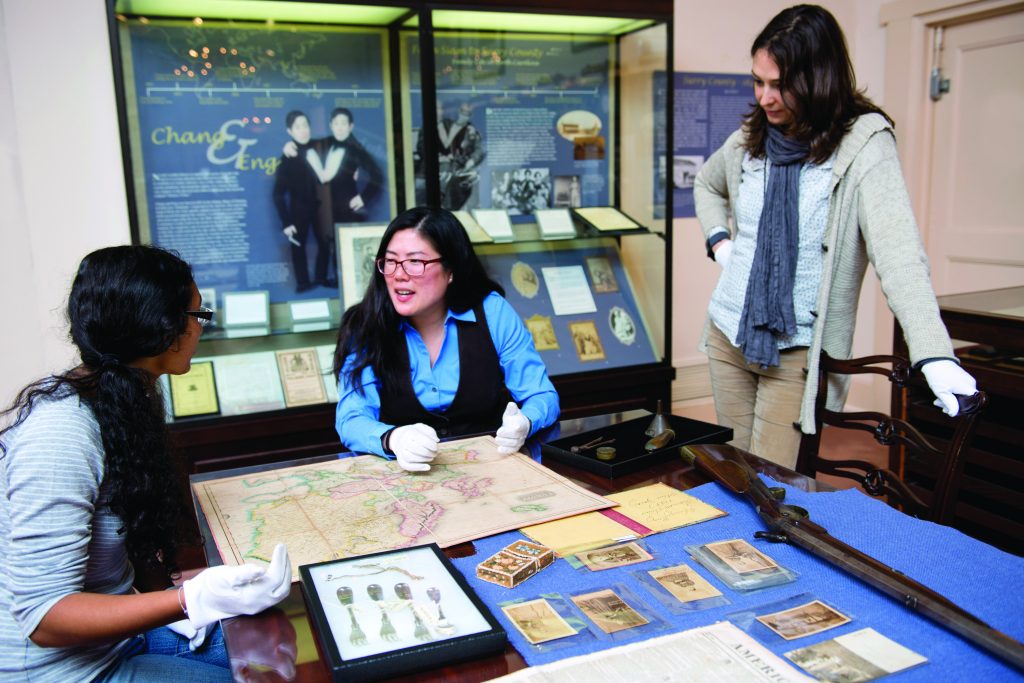
Researchers at the University of North Carolina at Chapel Hill will team up to develop an innovative mobile app to help identify plant species in the field. The app also will enable botanical garden and herbarium visitors to delve much more deeply into information about plants on view.
The Mobile Flora App won the 2013 Carolina Apps Competition, co-sponsored by the Office of the Vice Chancellor for Research and Innovate@Carolina.
“This app is a great example of the innovative nature of Carolina researchers,” said Barbara Entwisle, vice chancellor for research. “It will help users understand more about botanical science while allowing them to advance our overall botanical knowledge.”
Content for the app will be based on Flora of the Southern and Mid-Atlantic States, a book by Alan S. Weakley, director of the UNC Herbarium in the North Carolina Botanical Garden and a member of the graduate faculty in the department of biology and the curriculum in ecology and the environment in the College of Arts and Sciences. The text has become the authoritative document describing Southeastern plants, their distribution, habitats, and how to distinguish one from another.
But at more than 1,000 pages, the book “is a serious hindrance when hiking through natural areas,” said Weakley, who is part of the team developing the app.
“The failure to have this valuable resource invariably leads to misidentification of species, or the use of outdated names that results in lost opportunities to record the presence of species in areas where they were not previously known to occur,” he said.
Along with solving that problem by giving people portable access to the book’s information, the app will let them use their phone’s GPS to narrow down content to existing botanical knowledge about the area. This will make it easier to determine whether a plant’s occurrence there was previously unknown. And once they identify the plant, they can use the phone’s camera to take its picture and the GPS to record its location. These can later be uploaded to a UNC Herbarium database that documents where species exist.
“This functionality will promote citizen science, allowing people to find species in new locations and nearly instantaneously declare their presence to the rest of the scientific world, including robust documentation, and receive appropriate recognition for their discovery,” said Weakley.
The app can also greatly extend climate change research, by providing scientists with numerous data points to track how the phenomenon may affect plant distribution over time.
Also because of the app, botanical garden and herbarium staff will be able to include quick response codes with traditional materials, such as signage, that identify a plant. Then visitors can scan the codes into their phones, pulling up detailed information about the specimen.
The app is targeted for a spring 2014 release. It is the second winner of the Carolina Apps Competition. The first, Time to Drive, was developed by the UNC Highway Safety Research Center in collaboration with Sky Highways. It supports supervisors of teen drivers during the learner stage to help make sure teens gets lots of practice, so they can become safe drivers. The app is now available at the App Store. See www.timetodriveapp.com for more information.




